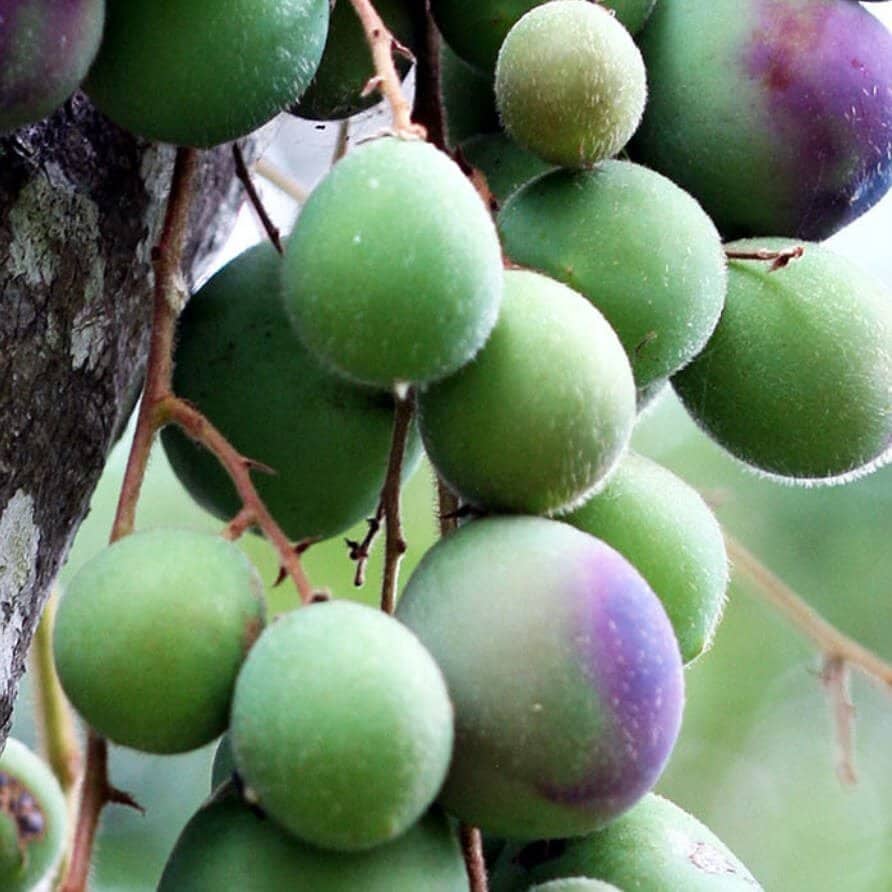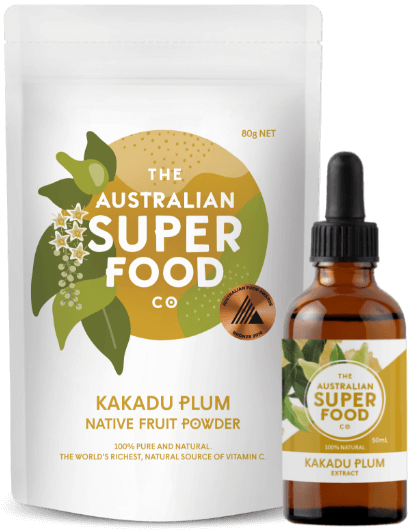Considered a gift of the Dreamtime, the Kakadu Plum (also known as Gubinge, Billygoat Plum, Murunga, Terminalia Ferdinandiana) is Australia’s star superfood performer. Kakadu Plum has exceptional nutritional and antiseptic properties and has been an important food and medicine in Northern Australia for millennia. From March to June, the local people harvest and consume this energizing, thirst-quenching fruit. Throughout the rest of the year, the tree sap is consumed to treat joint inflammation, whilst the bark is applied to the body to treat burns, rashes and infections.
“Namarrkon is the lightning man. His body is shaped like a praying mantis. He makes lightning flashes with his lightning rods that go around his body. This is his power source, to light up clouds and the sky. Namarrkon has axes on his shoulders and knees. When he comes to earth as a lightning strike, he uses the axes to split trees. We can hear Namarrkon’s thunder from late October. That’s when he tells Aboriginal people that Kakadu Plum is ready to collect and eat.”
– Leslie Nawirridj, Gunbalanya.
Flavour:
Initial taste of the fruit is tart, with some astringency. Some say the fruit looks and tastes like an English gooseberry.
Palate:
Slightly sweet, yet mostly sour, fruity taste on the palate, much like lemon and reminiscent of English gooseberry.
Aroma:
A subtle stewed apple and pear aroma, with subtle cooked citrus and floral musk notes.
Kakadu plum fruit is perfect for use in fruit jams, chutneys, sauces, marinades, juices, ice cream and as a general flavour enhancer. It is also often used in cosmetics and natural pharmaceuticals. It has the highest recorded levels of Vitamin C of any fruit in the world, measuring up to 100 times the Vitamin C content found in an orange.
Try adding some to a green smoothie or smoothie bowl for an extra boost of Vitamin C. Or use our Vitamin C Nutrient Booster, which features Kakadu plum as a key ingredient.
The tart and intense fruity flavour of Kakadu plum lends itself to a range of sweet and savoury dishes, including cakes, jams, mayonnaise, sweet and savoury sauces, yoghurt and ice cream.
Use Kakadu plum native fruit powder in your cooking to impart a delicious, tangy, citrus-like flavour. It’s a great ingredient for almost any cream and fruit-based dessert, and works well with white chocolate, cheese and cheesecake, sponge cake, biscuits, creme brulee, ice cream and sorbet. Kakadu plus is a perfect complement for a variety of fruit, in particular apple, pear, citrus, tropical (banana, mango, papaya, pineapple), stone fruit and coconut.
Try adding a little to home-made hummus, nut cheese, mild curries and slow-cooked tagines. The fruit complements most root vegetables, such as sweet potato, pumpkin, beetroot, carrot, turnip, parsnip. Combine Kakadu plum with olive oil, garlic, fresh herbs (such as rosemary, oregano and thyme) and sea salt. Rub into fish before pan-frying and finish with a squeeze of fresh lemon juice, or mix a little with butter, garlic and sea salt and smear over corn on the cob.
Kakadu plum pairs well with dairy products, oil and vinegar-based marinades, salad dressings, meat-based jus and egg-based condiments.
The fruit complements white fish, chicken and pork, particularly when used in a marinade, sauce or jus; it also works well with lamb and other red meat. Perfect combined with oil, dijon mustard, white wine vinegar and garlic for a simple, but delicious salad dressing.
Kakadu plum lifts the profile of alcoholic beverages such as gin, vodka, white rum, Cointreau and tequila. It adds a refreshing sour taste to soda, tonic, mineral waters and lemonade.
Click here for delicious Kakadu Plum recipes.










